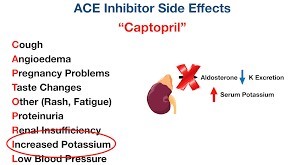A nurse in an outpatient mental health facility is assessing a child who has autism spectrum disorder. Which of the following manifestations should the nurse expect?
Strict adherence to routines
Difficulty paying attention to tasks
Disobedience to authority figures
Excessive anxiety when separated from parents
The Correct Answer is A
- A. This choice is correct because a child who has autism spectrum disorder often exhibits strict adherence to routines and rituals, and may become distressed or agitated when there are changes or disruptions to their usual patterns.
- B. This choice is incorrect because difficulty paying attention to tasks is not a specific manifestation of autism spectrum disorder, but rather a common symptom of attentiondeficit/hyperactivity disorder (ADHD). A child who has autism spectrum disorder may have difficulty focusing on tasks that are not of interest to them, but may also show intense concentration on tasks that are of interest to them.
- C. This choice is incorrect because disobedience to authority figures is not a specific manifestation of autism spectrum disorder, but rather a common behavior problem in children and adolescents. A child who has autism spectrum disorder may have difficulty understanding social cues and expectations, but may also show compliance and cooperation when given clear instructions and positive reinforcement.
- D. This choice is incorrect because excessive anxiety when separated from parents is not a specific manifestation of autism spectrum disorder, but rather a common symptom of separation anxiety disorder. A child who has autism spectrum disorder may have difficulty forming attachments and expressing emotions, but may also show affection and attachment to familiar people.
Nursing Test Bank
Naxlex Comprehensive Predictor Exams
Related Questions
Correct Answer is D
Explanation
Choice A rationale:
Telling the client, "It's not your choice to be here, so you have to accept the treatment we plan for you," disregards the client's autonomy and right to make decisions about their own healthcare. In mental health settings, respecting a patient's autonomy and involving them in the decision-making process is crucial for ethical care. This statement does not address the client's fear or provide any reassurance.
Choice B rationale:
Choice C rationale:
Asking, "Why do you think your provider will prescribe you medications that will make you sleep?" attempts to explore the client's fear, but it may come across as dismissive or invalidating. It could make the client feel unheard or misunderstood, which is not ideal in this situation.
Choice D rationale:
Stating, "I will make sure that we respect your right to refuse medications," is the most appropriate response. It acknowledges the client's fear and reassures them that their autonomy will be respected. It opens the door for a discussion about the client's concerns, allowing them to express their fears and preferences. Respecting the client's right to refuse medications is fundamental to ethical nursing practice and patient-centered care.
Correct Answer is B
Explanation

- A is incorrect because tinnitus, or ringing in the ears, is not an adverse effect of captopril, but rather a symptom of other conditions such as ear infection, noise exposure, or medication toxicity.
- B is correct because cough is a serious adverse effect of captopril, which is an angiotensinconverting enzyme (ACE) inhibitor that can cause angioedema, or swelling of the airways.
- C is incorrect because polyuria, or excessive urination, is not an adverse effect of captopril, but rather a symptom of other conditions such as diabetes mellitus, diabetes insipidus, or diuretic use.
- D is incorrect because blurred vision is not an adverse effect of captopril, but rather a symptom of other conditions such as eye strain, refractive error, or cataract.
Whether you are a student looking to ace your exams or a practicing nurse seeking to enhance your expertise , our nursing education contents will empower you with the confidence and competence to make a difference in the lives of patients and become a respected leader in the healthcare field.
Visit Naxlex, invest in your future and unlock endless possibilities with our unparalleled nursing education contents today
Report Wrong Answer on the Current Question
Do you disagree with the answer? If yes, what is your expected answer? Explain.
Kindly be descriptive with the issue you are facing.
